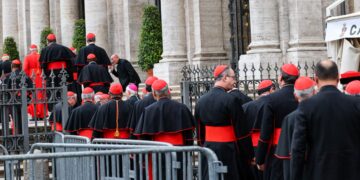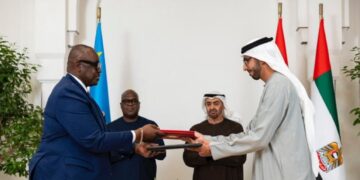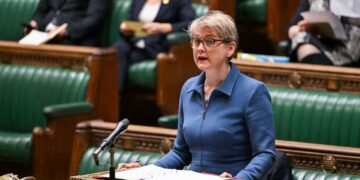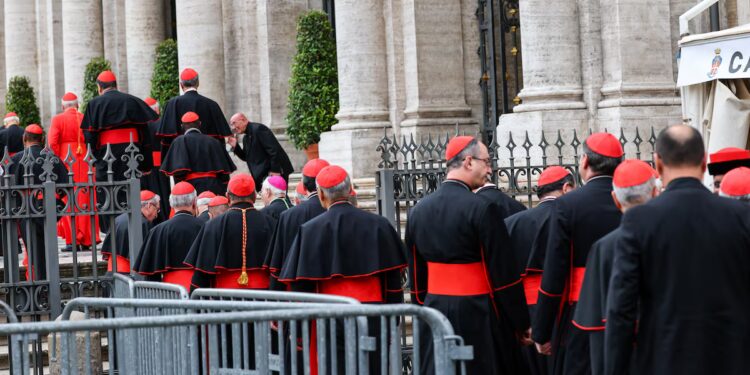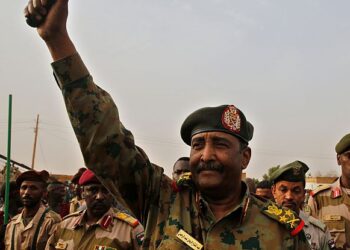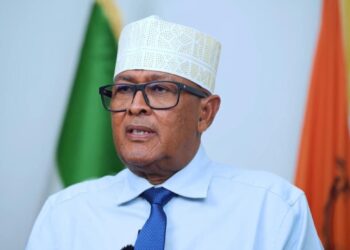By Enyichukwu Enemanna
Cardinals of the Roman Catholic Church will commence their secret conclave that will usher in the election of a new leader of the global Church on May 7, the Vatican said on Monday.
The date was agreed upon during a closed-door meeting of cardinals at the Vatican, the first since the funeral of Pope Francis on Saturday.
About 135 cardinals, all under the age of 80 and from across the world, are eligible to take part in the vote for the next head of the 1.4 billion population Church.
The 16th-century Sistine Chapel, where conclaves are held beneath the gaze of Michelangelo’s masterpiece frescoes, was closed to tourists on Monday to make it ready for an election that mixes ancient ritual with modern, anti-spying technologies.
The previous two conclaves, held in 2005 and 2013, lasted just two days. But Swedish cardinal Anders Arborelius said on Monday that the coming ballot may take longer, as many of the cardinals appointed by Pope Francis have never met each other.
Francis made a priority of appointing the red-hatted “Princes of the Church” from countries that had never had them, such as Myanmar, Haiti, Rwanda, and Arborelius’ own Sweden.
“We don’t know each other,” Arborelius said.
The earliest the conclave could have begun was May 6, the Vatican said.
Starting it a day later therefore implies that cardinals will have slightly more time for their daily general discussions ahead of the momentous ballot.
According to the Vatican, about 190 cardinals took part in Monday’s meeting, including roughly 100 electors.
Among the questions raised were the issue of sexual abuse, which has rocked the Church for years, as well as the need to spread the Christian faith, relations with other religions, and the qualities the new pope needs to respond to such challenges.
Pope Francis, who was elected in 2013, died at the age of 88 on April 21. His funeral on Saturday and a procession through Rome to his burial place at the Basilica of St Mary Major attracted crowds estimated at more than 400,000.
He was the first Pope from Latin America. He attempted to open up new conversations in the Church, allowing debate on issues such as ordaining women as clergy and outreach to LGBTQ Catholics.
